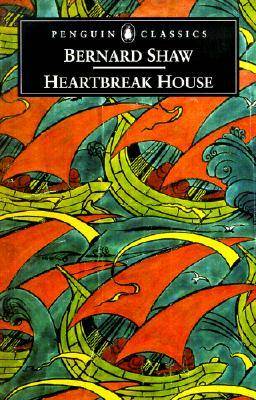

Heartbreak House
by George Bernard Shaw and Dan H. Laurence and David Hare
Entertaining allegory examines apathy, confusion and lack of purpose as causes of major world problems.One of the distinguished comic dramatist's more somber plays, this entertaining allegory examines apathy, confusion and lack of purpose as causes of major world problems, with larger-than-life characters representing the evils of the modern world.The house could arguably be a metaphorical reference to a ship which must be guided capably, not only by its crew, but also its passengers. Each character in the house represents some facet of British society, Mangan being the nouveau riche capitalist, Hesione the flighty Bohemian, Ellie a struggling member of the lower class and so on.One of Shaw's most important and evident themes is reality versus appearances. By the end of the play, each character is revealed to be nothing like who they appeared to be in the beginning. Mangan, who was reported to be "a Napolean of industry" is revealed in the third act to be virtually penniless and incapable of running his own businesses. It is in fact Mazzini who runs Mangan's businesses although he at first appears mild and incompetent.
Release Date:
December 31, 2000

